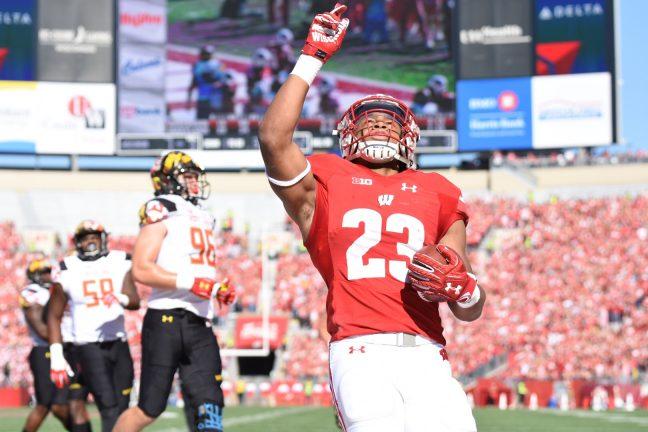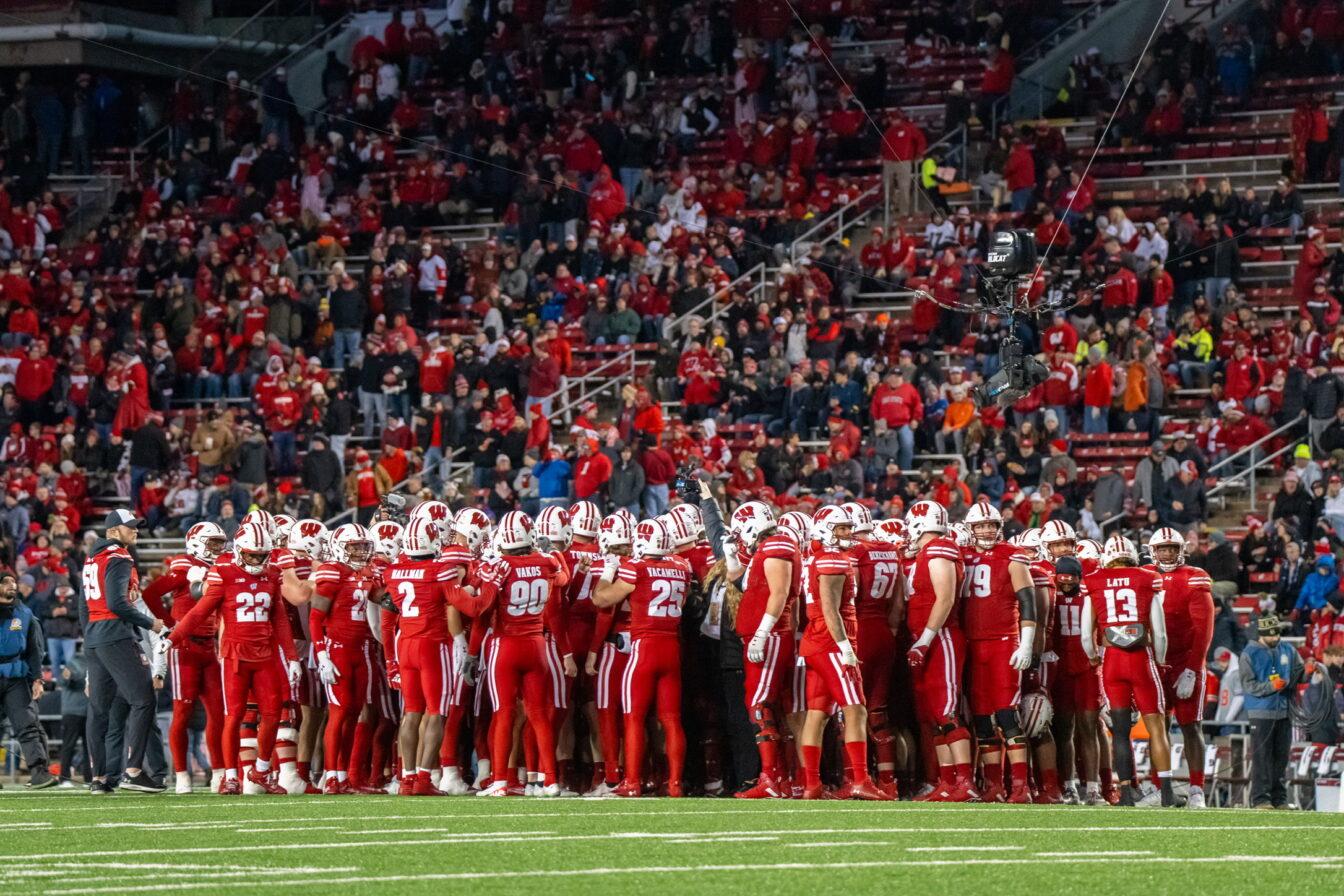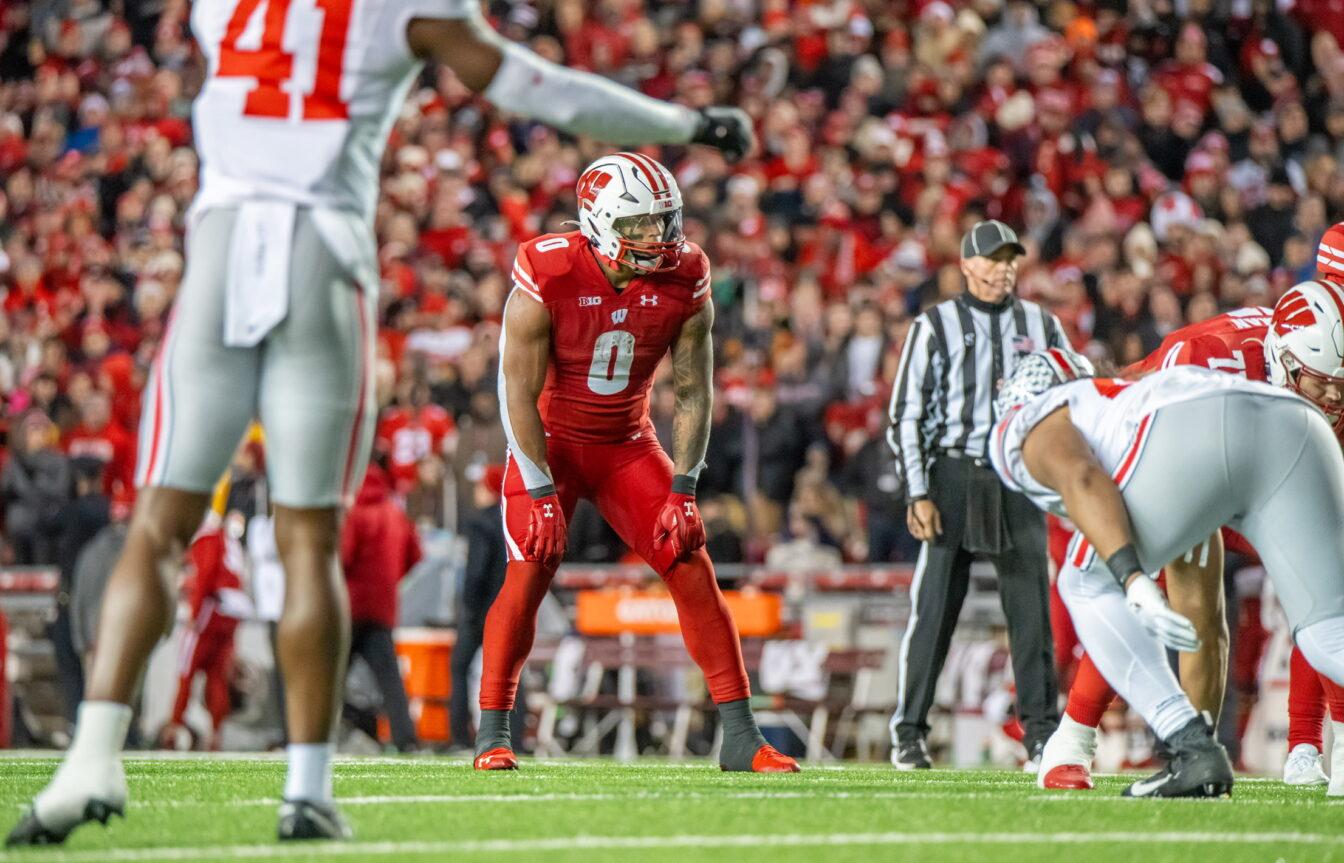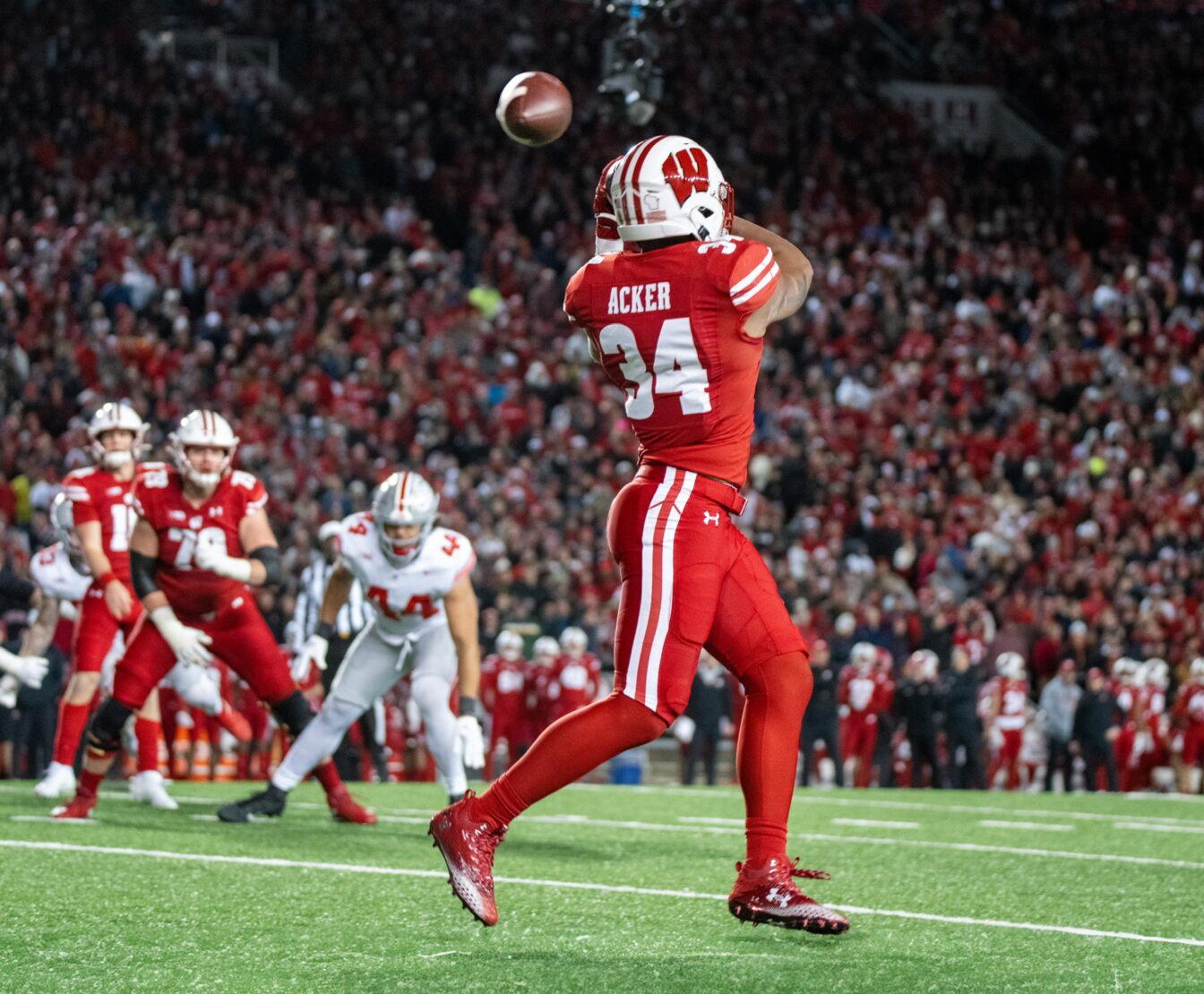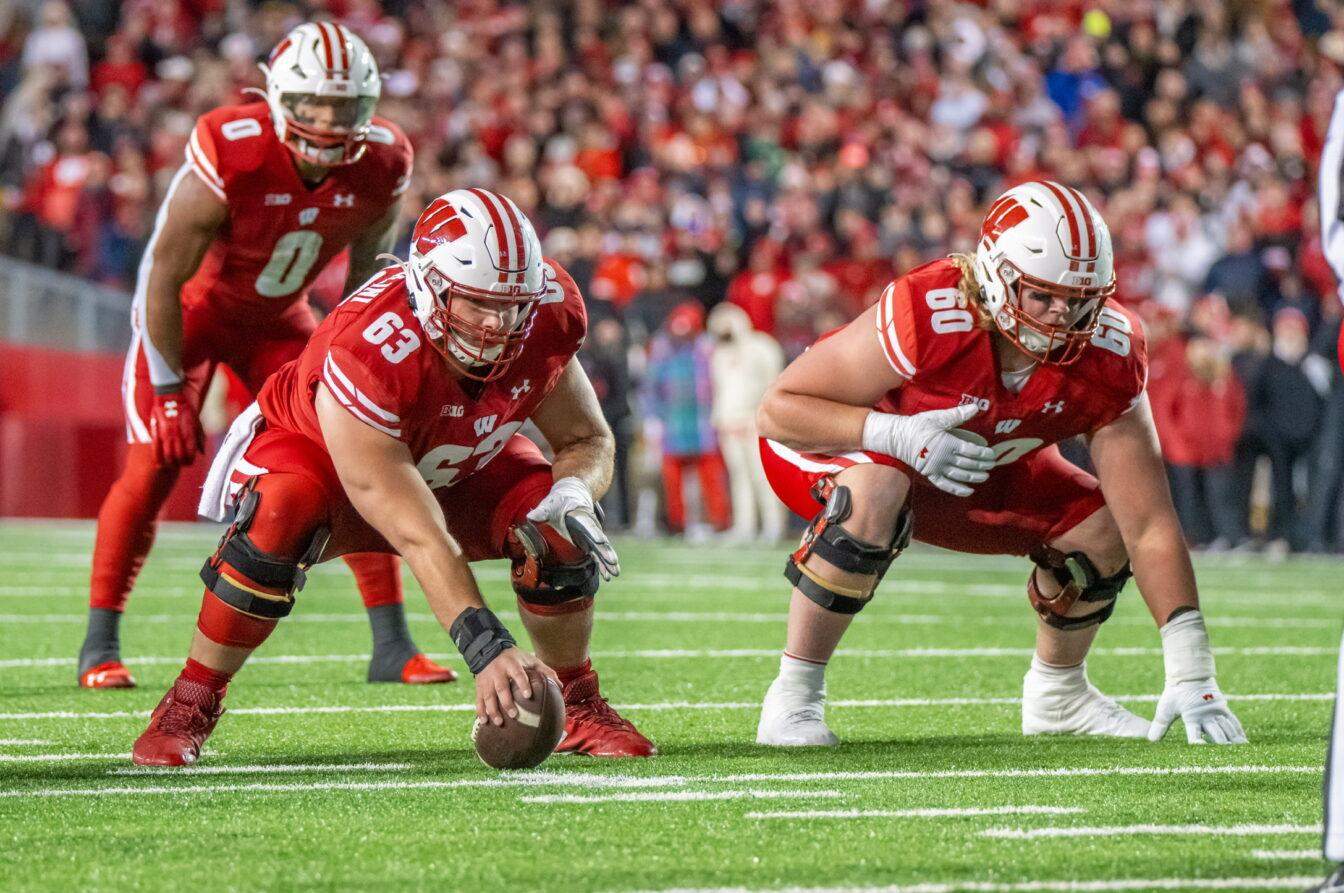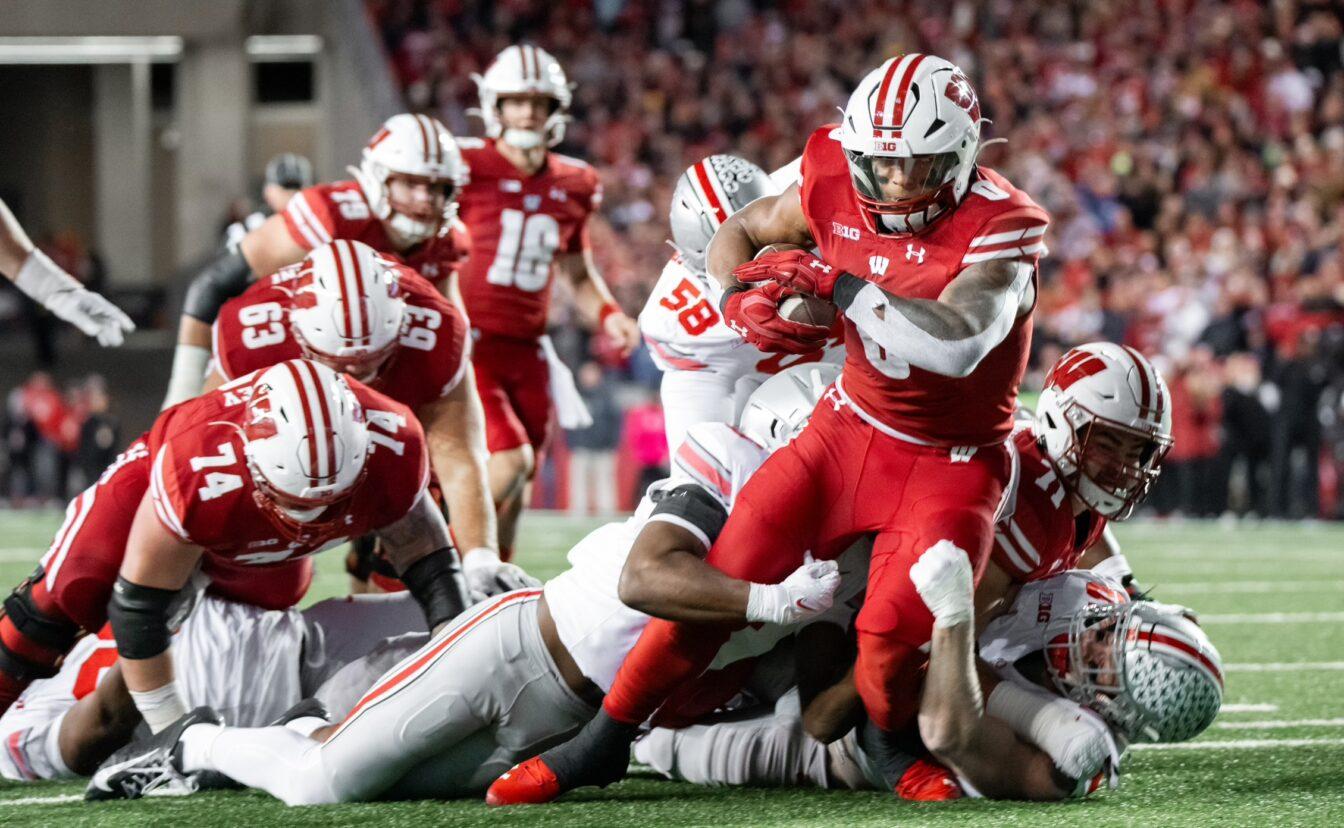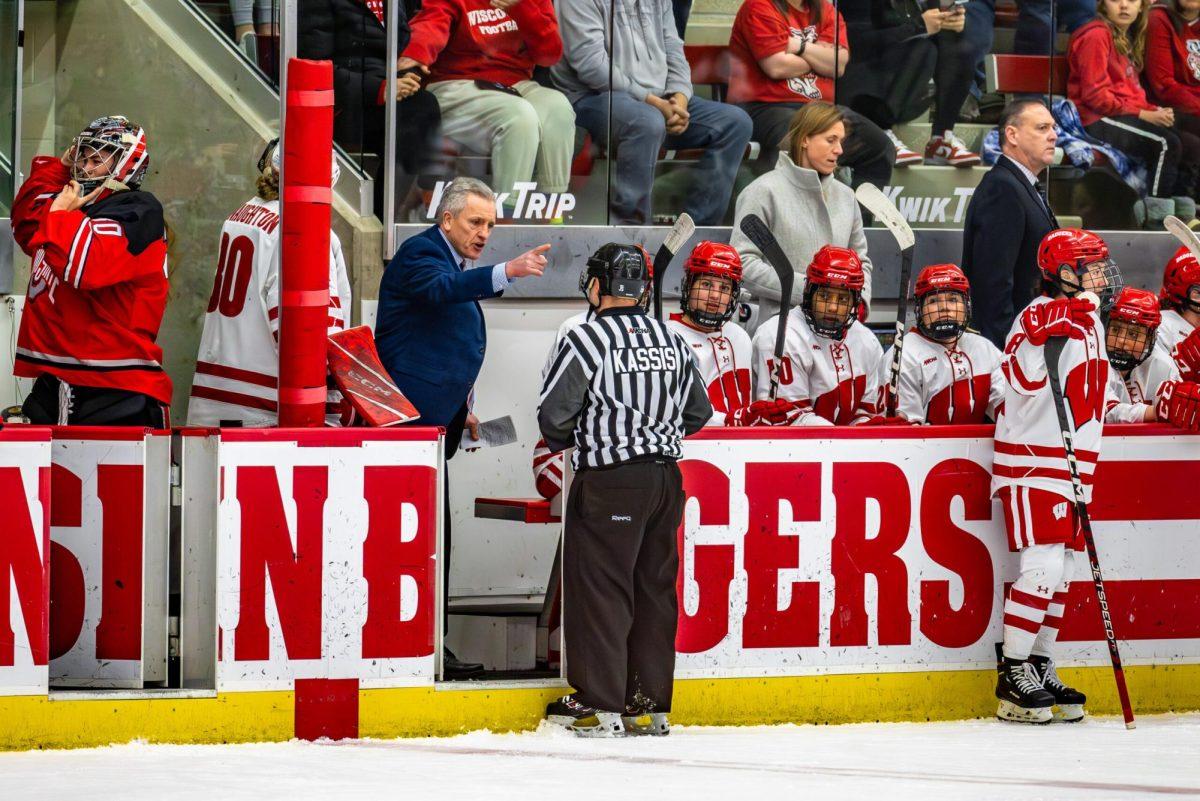If this pandemic has taught us anything, it’s that sometimes we need to slow down, stop and take time to reflect, and what better time is there to stop and reflect on past Badger football successes than now?
If the season were taking place, our writers would be buried keeping up with game previews, recaps and team interviews. A never ending need to move forward at an exceptional pace.
When was the last time you stopped to think about the Badgers 2017 Orange Bowl season or Russell Wilson’s unbelievable 2011 campaign. Now is as good a time as ever to educate yourself on Badger football history, or at least what the team has accomplished in the last 20 years or so.
Football: Say hello to new generation of Wisconsin running backs in 2021
That’s why we are counting down the top five best Badger football seasons of our lifetime, dating back to 1997. In this span, the Badgers appeared in 22 bowl games, six of those being Rose Bowls. The only year the Badgers didn’t make a bowl game in this stretch was 2001.
Otherwise, the Badgers have been a mostly consistent success on the field. Their great coaching, stellar offensive line, elite running backs and stingy defense, made this list very difficult to narrow down. Many strong seasons made a compelling case, but ultimately did not make the cut.
Regardless, here are our picks for the fourth and fifth best Badger football seasons of our lifetime.
Football: Q&A with The Daily Emerald’s Brady Lim ahead of Rose Bowl matchup with Oregon
5. 2019
Before you argue against and disgrace this article for this choice, let me defend it.
Yes, the 2019 season featured some memorable lows in a campaign filled with so much promise. The loss at Illinois after a 6-0 start, followed by a wholloping at Ohio State. The brutal second half of the Big Ten Championship game where Ohio State defeated the Badgers once more. Finally, the heartbreaking loss to Oregon in the Rose Bowl. This was a four-loss campaign. So, why did it make the cut?
This was one of the most complete Badger teams we have seen since 2011. Jonathan Taylor had another Heisman worthy year, but he wasn’t alone in his efforts. Jack Coan made tremendous strides in his first full season as a starter, completing passes at a remarkable 69.6%. He tossed 18 touchdowns and rarely turned the ball over.
Wide receiver Quintez Cephus proved a legit target through the air, using his size and strength to create separation from defensive backs. Cephus hauled in 59 catches for just over 900 yards, the most receiving yards for a Badger receiver since Alex Erickson in 2015.
The defense was also astounding for the most part, blanking opponents four times under defensive coordinator Jim Leonhard. Despite surrendering 20 plus points in seven of the Badgers last eight contests, the defense still ranked tenth in the country in points per game allowed. More importantly, the defense wasn’t weak in any one area. From the interior to the defensive backs, the 2019 Badger defense could match up with anyone. But the most impressive part is how young that defense was.
Though, perhaps one of the more significant reasons this team made the cut, is advanced analytics. In the past decade, Big Ten football has become far more legit than ever before. As a whole, it has begun to rival the Southeastern Conference. With so many quality teams, success in this conference carries more weight and needs to be met with the respect and praise it deserves.
The 2019 Badgers earned a 17.73 Simple Rating Score from Sports Reference, a metric accounting for strength of schedule and point differential. This mark is the second highest for any Badger team since 1997. It’s one stat but it says a lot. Had this 2019 squad played in any other year, the results might have been more favorable for the Badgers.
The impact of the 2019 season cannot go unnoticed. What they did on the field was great but it wasn’t special in comparison to some of these other seasons. But looking forward, this 2019 campaign has cemented the Badgers as contenders.
After a disappointing 2018 with a similar roster, the Badgers bounced back in a big way. Now, the Badgers have secured their best recruiting class in years, in part thanks to this season.
247Sports has rated the Badgers 2020 recruiting class as the 26 best class in the country while the 2021 class is currently rated 16 following the commitment of 5-star offensive lineman Nolan Rucci.
It’s easy to look back at the 2019 season and say what could have been. But upon further inspection, you might realize how well-rounded this squad was and how it has helped establish the Badgers as a contending force for years to come.
4. 1999
Some of you may be surprised to see the 1999 season as low as number four. After all, this is one of the two seasons in this span where the Badgers won a Rose Bowl, and it was the second consecutive Rose Bowl win.
The Badgers finished the 1999 season ranked fourth in the country following their Rose Bowl victory over Stanford. This fourth place finish is the highest in any Badger season since 1997.
The team was coached by Barry Alvarez and led by superstar running back Ron Dayne in his final year as a Badger. Dayne took home a Heisman trophy alongside many other significant awards and honors. Dayne rushed for over 2,000 yards and 20 touchdowns in 1999 for the second time in his Badger career.
Dayne’s tremendous success opened up the offense for Big Ten Freshman of the Year, quarterback Brooks Bollinger. As a dual-threat quarterback, Bollinger ran just as much as he threw.
The Badgers ran it down their opponents’ throats, controlling the tempo of their contests, forcing tough, low-scoring fights in the trenches. The Badger defense surrendered just under 13 points a game in 1999 and more than 20 points just twice.
The 1999 Badgers were exceptional on the road, defeating three ranked conference foes on their home turf. This list includes Minnesota, the Ohio State and Purdue.
So why are they only at number four on this list again?
This team did suffer two losses, back-to-back early in the season. First they lost at Cincinnati, then they dropped a massive home game to Michigan the following week.
Additionally, this was before there was a conference championship. The Badgers reached the Rose Bowl because they only lost one conference game. It’s a little bit tougher to reach that Rose Bowl now when you have to face a monster from the Big Ten East division to get there.
Lastly, Sports-Reference grades the 1999 Badgers with an SRS of 14.88. A fine score, but the Badgers sixth highest score since 1997.
This team was great, no doubt. But you have to wonder how inferior they would have been without Dayne. Dayne carried this team.
On the flip side, however, Dayne’s Heisman campaign, capping off his wonderful career, set the bar for future running backs, ushering in Wisconsin’s modern tradition of elite running backs.
Dayne’s influence on this program alone combined with a Rose Bowl victory is ultimately what makes the 1999 season one of the best.








